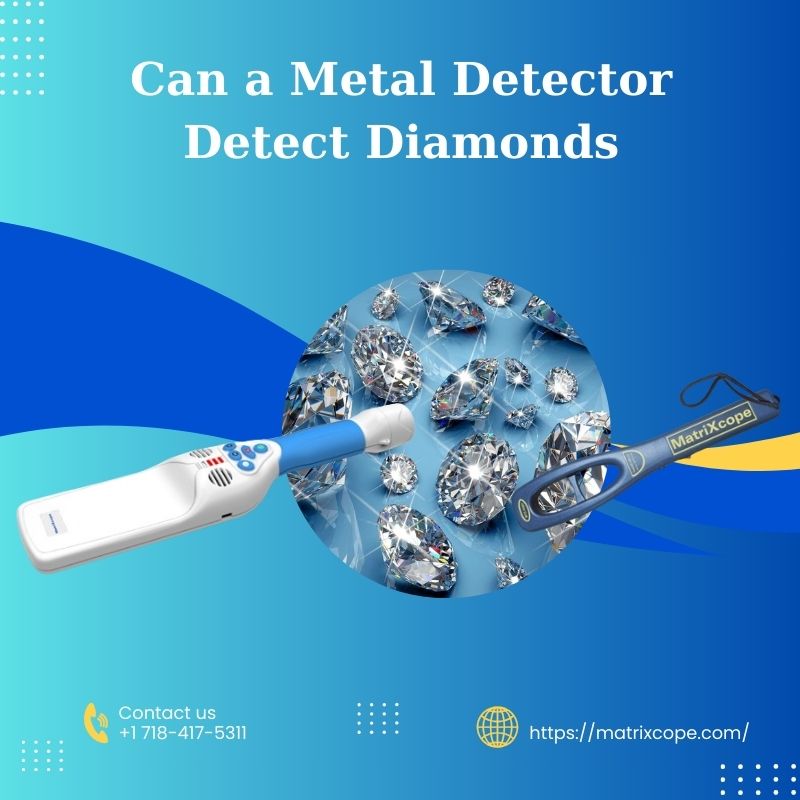Blogs
Can a Metal Detector Detect Diamonds?
When it comes to searching for valuable items, metal detectors are a popular tool. They are widely used to locate lost treasures, coins, jewelry, and even archaeological artifacts buried underground. However, a common question arises: can a metal detector detect diamonds?
Understanding Metal Detectors
Metal detectors work by generating an electromagnetic field. When this field encounters a metallic object, it induces a secondary electromagnetic field in the object, which the detector then picks up and signals to the user. This technology is highly effective for finding metals like gold, silver, iron, and other conductive materials.

Diamonds and Metal Detectors
Diamonds, on the other hand, are not metals. They are a crystalline form of carbon and are non-conductive. As a result, diamonds do not create an electromagnetic response that a metal detector can detect. This means that a metal detector, by itself, cannot find diamonds directly.
Detecting Diamonds Indirectly
Although metal detectors cannot detect diamonds directly, they can still be useful in finding them indirectly. Diamonds are often found in association with certain types of rock formations and minerals. For example, kimberlite pipes are volcanic formations that can contain diamonds. These pipes may also contain metal-rich minerals, such as garnets, magnetite, and ilmenite, which a metal detector can detect. By identifying these mineral deposits, prospectors can narrow down their search areas and increase their chances of finding diamonds.
Jewelry Detection
Another indirect method is through detecting metal settings or clasps in diamond jewelry. If a diamond is set in a metal ring, necklace, or bracelet, the metal detector will detect the metal component, potentially leading to the discovery of the diamond.
Advanced Detection Technologies
For those serious about diamond hunting, there are advanced technologies beyond traditional metal detectors. Ground-penetrating radar (GPR) and specialized diamond detectors are designed to identify changes in the sub-surface composition, which can indicate the presence of diamonds and other gemstones.
Conclusion
While metal detectors are invaluable tools for finding a wide range of metallic objects, they are not capable of detecting diamonds directly due to the non-metallic nature of diamonds. However, metal detectors can still play a crucial role in the search for diamonds by identifying associated minerals and metal settings in jewelry. For dedicated diamond hunters, combining metal detection with other advanced methods can significantly improve the chances of unearthing these precious gems.
